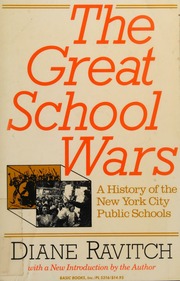
References and Quotes
Reference
The Rockefeller Report
The third and final part of the Gary story comes straight out of Weird Tales. In all existing accounts of the Gary drama, none mentions the end of Superintendent Wirt’s career after his New York defeat. Only Diane Ravitch (in The Great School Wars) even bothers to track Wirt back home to Gary, where he resumed the superintendency and became, she tells us, a "very conservative schoolman" in his later years. Ah, what Ravitch missed!
Quote
Used in: The Jewish Student Riots
There should be no delay. The situation is acute. (p. 254)
Where It's Used →PDF Not Available
Quote
Used in: The Jewish Student Riots
a system by which the Rockefellers and their allies hope to educate the children of this and coming generations in the doctrine of contentment—another name for social serfdom. (p. 274)
Where It's Used →PDF Not Available
Quote
Used in: The Jewish Student Riots
John Dewey had realized that since the city child could not receive his practical education in the home or community as his forefathers had, the school was called on to fill the vacuum. The hours spent by the city child on the streets were detrimental to his character, wrote Bourne, therefore the school must keep children fruitfully occupied for most of the day doing things that were meaningful to them as children. Bourne wrote that the Gary school was not only a preparation for life, it was “a life itself, as the old household was a life itself.” (p. 237)
Where It's Used →PDF Not Available
Quote
Used in: The Rockefeller Report
A mother whose child had been in PS45 in the Bronx, the first to be reorganized, complained in a letter to a newspaper that her child changed classes every forty minutes and had to wear her coat all day to avoid losing it; she claimed that the child spent the day listening to a phonograph, taking photographs, sitting in assembly, dancing, or in similar nonacademic activities. At the term’s end, said the mother, she transferred her child to another school and found that she was a full term behind in her studies. (p. 256)
Where It's Used →PDF Not Available
Quote
Used in: The Rockefeller Report
A reporter, Thomas S. Baker, visited the schools in Gary and came back with impressions that reflected popular anxieties about the tendencies of progressive education. While acknowledging that the townspeople of Gary were very proud of their schools, the writer was critical of what appeared to be the “cult of the easy.” The aim of the system “is to allow the child to study those things which he likes to learn in the manner in which he likes to learn them.” He reported that business letters from manufacturers were held up as examples of good writing; this was evidence, he thought, that the Gary schools were overly utilitarian. He wondered whether this “pursuit of happiness” could “make hard-working and accurate scholars and produce thoughtful men.” (p. 256)
Where It's Used →PDF Not Available
Quote
Used in: The Rockefeller Report
A school principal commented that he believed the Gary plan a step backward educationally because it focused on the group rather than the individual. The plan had nothing to offer educationally, he warned. It was “simply a departmental schedule so drawn as to accommodate two groups of classes in one building.” It creates such a huge educational machine that “the individual is lost.” The principal becomes a business manager, and “the school becomes an educational factory.” He predicted that if the plan were adopted throughout the city, problems of retardation and overage would multiply as a result of the minimal contact between teachers and pupils.! (p. 256)
Where It's Used →PDF Not Available